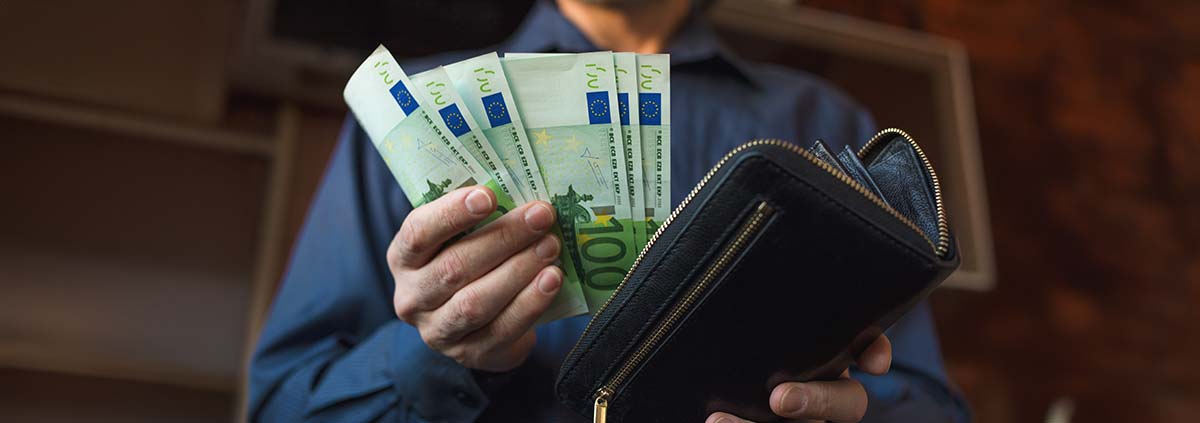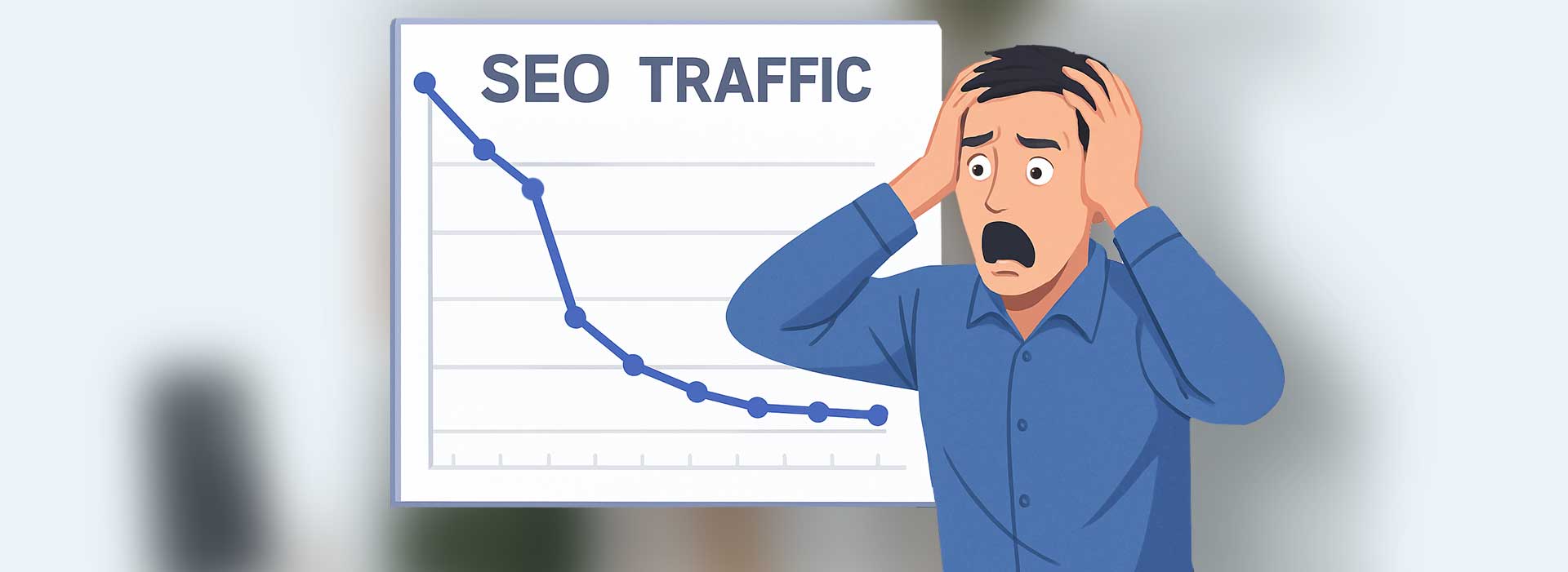I’ve noticed that some of our clients have received copyright infringement notices from a company called COPYTRACK, accusing them of using unlicensed images. These notices direct recipients to a link where they are instructed to pay a license fee to presumably avoid further legal consequences.
After a thorough review of these notices, I have identified several key points.
Before proceeding, please note my disclaimer: I hold a PhD in Information Sciences and have expertise in International Copyright Law, but I am not a lawyer. Only an attorney can provide proper legal advice. My comments here are purely my opinion, based on a journalistic examination of the situation, without a scientific approach.
Here is an example of the first letter one of our clients received from COPYTRACK. For confidentiality, personalized details have been replaced with […].
Subject: Your publication on [website-URL]
Authorization request / Unauthorized image use – Case no: […]
Dear […],
We, COPYTRACK, are writing to you on behalf of our client Oskanov, who has assigned us the monitoring and protection of their licenses and image rights globally. On [Date] we have been informed that Longevity by Nature is likely using an image without permission and the client has exclusively commissioned us with the clarification, administration of the image rights and, if necessary, the enforcement of any copyright infringement through our partner lawyers. Images are protected by copyright law and infringements are actionable under international law and the respective national law. Please see the attachment below for details.
On behalf of our client, we must first determine if you have a valid license to use the images in question. If you have a valid license or any other legal justification to use these images, please reply to this email and include proof of license purchase and/or any other necessary information to validate the usage.
Please note that you are obliged to provide the necessary information about the usage of the image to allow us to verify the lawfulness of such usage.
Please respond to this letter no later than [Date].
If this is not the case, your use of the image material most likely constitutes a copyright infringement. If no settlement can be reached, we as Copytrack are directly instructed to enforce these rights for the territory in the Federal Republic of Germany through our German partner lawyers and, in addition, to instruct our respective partner lawyers in other countries to examine and, if necessary, enforce the infringement of the rights in the respective countries. You would then be legally obligated to compensate our client for the damage caused by this copyright infringement.
Rights holder Oskanov
Image found on [URL]
Online Since [Date]
3 STEPS TO SOLVING YOUR CASE
In order to resolve this case amicably with you, we request your cooperation. Please complete the following steps to close this case:
- Check
Review the evidence on this case by going to https://portal.copytrack.com and entering CASE ID […] - Proof
Show us proof of your license by uploading it or providing any other legal justification to use these images and if it is valid, we will close your case immediately;
If you do not have a valid license or any other valid justification:
- Compensation / License
You now have the following 2 options:1. Option 1: Purchase of a subsequent image license (includes past and future use for one year after purchase).
2. Option 2: Compensation (includes the previous use and requires the immediate deletion of the image).
Image license (valid for 1 year from date of purchase) 978.09 €
Compensation costs (past usage) 900.00 €
Payment is due by [Date]
Payments for both options can be made securely online at https://portal.copytrack.com by entering CASE ID […].
We accept PayPal, credit card and bank transfer.
We calculate these fees based on our client’s license history, as well as the duration of use and type of rights infringement. Failure to provide a proof or pay for a valid license may result in your case being referred to our partner attorney and significantly higher additional fees.
To avoid further action, including legal action, provide proof of a valid license or any other relevant information by [Date], or acquire it by making payment in our online portal.
Sincerely yours,
Marcus Schmitt
(CEO)
About Copytrack
Since 2015, Copytrack has been helping creatives and brands protect their copyrighted images. As one of the leading digital licensing and copyright agents in the world, we have helped manage, license, and enforce over 200.000 cases of image theft. Though most cases settle peacefully, we reserve the right to proceed legally where necessary through our global network of partner law firms in order to protect the intellectual property of our customers.
Summary – Unauthorized use of the image – Case ID: […]
For the full report, visit https://portal.copytrack.com and enter this CASE-ID […].
Rights holder Oskanov
Image used [Image Display]
Image found on [URL]
Online Since [Date]
Image license (valid for 1 year from date of purchase) 963.00 €
Compensation costs (past usage) 900.00 €
Payment is due by [Date]
COPYTRACK provides a URL that takes recipients to a platform where they can pay the requested fees. COPYTRACK has also included both images in a formal-looking legal letter, presenting them as exhibits.
The footer of the email contains:
© 2024 COPYTRACK GmbH
Dresdener Strasse 31, 10179 Berlin • Trade register: Charlottenburg district court • trade register number: HRB 173269B, Executive director: Marcus Schmitt • VAT ID number: DE30546611
My investigation has uncovered several key points:
- According to their contact page at https://www.copytrack.com/de/kontakt, COPYTRACK identifies itself as a German company named “COPYTRACK GmbH”. In Germany, “GmbH” is equivalent to an LLC in the United States.
- Further investigation in internet forums reveals that COPYTRACK has been distributing copyright infringement notices extensively across the United States.
- I found entries for COPYTRACK in the German business registry at bundesanzeiger.de, which lists all GmbH entities. Their first entry dates back to 2017, where they are listed as the former PIXLEGAL GmbH. It appears they have been involved in issuing copyright notices for some time.
Is Copytrack Legit?
From a legal perspective, it is clear that COPYTRACK cannot enforce any claims via email without representation from a state-accredited U.S. lawyer who holds a bar license in your state. This means that if your company is based in a U.S. state, COPYTRACK would need to hire a local attorney to pursue their claims. Since their emails come from non-lawyers, these communications lack legal standing in your state.
COPYTRACK seems to rely heavily on fear as their primary tactic. With this in mind, our client was advised by their legal department to ignore COPYTRACK’s claims unless they came from an authorized U.S. State lawyer.
A couple things that piqued my interest; COPYTRACK writes this in their email:
We calculate these fees based on our client’s license history, as well as the duration of use and type of rights infringement. Failure to provide a proof or pay for a valid license may result in your case being referred to our partner attorney and significantly higher additional fees.
Analyzing this claim reveals a lack of transparency in how the amount was calculated. The claim is assumably based on several metrics, such as “client’s license history,” “duration of use,” and “type of rights infringement.” However, there are a few inconsistencies that are worth noting.
First, metrics like “client’s license history” and “duration of use” are vague and do not provide a clear basis for calculating damages. Second, the term “type of rights infringement” is not explained.
Since the alleged infringement occurred in the United States, U.S. copyright laws and due process regulations apply, not German laws and legal processes. Therefore, any calculation of damages should be grounded in U.S. legal standards.
In the United States, claiming fees for image use requires a detailed assessment of the actual damages caused by the infringement. This often involves hiring forensic experts to analyze web traffic data, such as the number of clicks and downloads, during the discovery process. This procedure is both complex and costly. Without concrete evidence to support a specific amount, like EUR 900, the claim appears unsubstantiated. This approach seems intended to pressure recipients into paying a fee quickly, without a proper examination of the facts.
They further threaten with legal actions:
To avoid further action, including legal action, provide proof of a valid license or any other relevant information by […], or acquire it by making payment in our online portal.
I find this legal thread problematic. COPYTRACK is a German company, with German lawyers as they claim below:
If no settlement can be reached, we as Copytrack are directly instructed to enforce these rights for the territory in the Federal Republic of Germany through our German partner lawyers (…)
If a German lawyer without a proper U.S. bar license were to act as a lawyer for a U.S. entity, it would constitute Unauthorized Practice of Law, punishable by up to a year in jail. By announcing their planned involvement, COPYTRACK is essentially threatening to engage in an illegal act in any state in the United States using unauthorized German lawyers. Making threats of illegal actions renders the company’s approach unlawful under U.S. laws. This is known as the “Unclean Hands Doctrine”, where the doctrine states that a party who seeks relief must not be guilty of unethical, illegal, or bad faith conduct regarding the subject matter of their claim. If the plaintiff has engaged in wrongful conduct, the court may deny them relief.
Another aspect is when the plaintiff causes “Fraud and Misrepresentation” which means if the plaintiff has obtained leverage or any advantage through fraud or misrepresentation, this can be grounds for dismissing the case or for the defendant to file a counterclaim.
And lastly, we have also to look at the doctrine “In Pari Delicto”: This doctrine prevents a plaintiff who has participated in wrongdoing from recovering damages for the consequences of that wrongdoing. If both parties are equally at fault, the court will leave them as they are.
Just the mere thread of legal actions using German lawyers in that case in my opinion gives the plaintiff enough leverage to dismiss the case, if it were to ever find it’s way to a U.S. court.
Another issue that caught my attention is the language used in COPYTRACK’s communication:
(…) we have been informed that (…) is likely using an image without permission (…)
and
To avoid further action, including legal action, provide proof of a valid license or any other relevant information by [Date], or acquire it by making payment in our online portal.
And also:
On behalf of our client, we must first determine if you have a valid license to use the images in question. If you have a valid license or any other legal justification to use these images, please reply to this email and include proof of license purchase and/or any other necessary information to validate the usage.
These sentences suggest a possible copyright infringement and place the burden on the recipient to prove they have a valid license for the image. Let’s break this down:
First,l I discovered that the image in question is available on stock image websites where licenses are provided. Therefore, our client likely obtained the image legally. COPYTRACK, acting on behalf of a copyright owner, has not clarified if the image’s author granted permission at any point. If the author did, COPYTRACK’s claims are baseless.
Second, it seems COPYTRACK uses ambiguous terms like “likely” to hedge their claims and shift the burden of proof onto the recipient. However, in the United States, the plaintiff must provide evidence of copyright infringement, not the defendant. In other words, you don’t need to prove anything to them; it’s their responsibility to present proof of infringement in detail and without any doubt.
In a follow-up email, COPYTRACK then threatened:
Unless you contact us within 14 days, we may withdraw the proposed fee and refer this matter to a copyright attorney, which will result in an increased monetary demand to account for the additional attorneys’ fees and costs incurred.
This approach makes no sense in the U.S., where attorney fees cannot be transferred to you unless a judge specifically orders it. In the U.S., each party typically pays for their own legal fees, a fact that COPYTRACK seems unaware of — or they are deliberately trying to sound intimidating. In German-speaking countries, the prevailing party usually bears all legal costs. This might explain why COPYTRACK is making similar claims to U.S. entities: they might not know how U.S. law works.
It also makes no sense to increase the monetary demand after initially setting the damages at EUR 900. Any competent lawyer would easily challenge COPYTRACK’S claims. This indicates that COPYTRACK operates within its own legal bubble and has likely never engaged in a legal battle in the United States in my opinion.
Let’s Analyze This Further
I found several key points regarding the potential issues with COPYTRACK. Here’s a breakdown of my concerns and some additional context:
- Unauthorized Practice of Law
As mentoined above, if a German lawyer without a proper U.S. Bar license writes to a U.S. entity, it would constitute the unauthorized practice of law. This is punishable and a serious offense in the U.S. Legal advice or representation in the U.S. must come from a lawyer who is licensed to practice in the relevant jurisdiction. - Letters from COPYTRACK
The fact that COPYTRACK is sending letters or emails on behalf of an author instead of a lawyer raises questions about their legitimacy and legal standing. This approach can be seen as an attempt to exert pressure without proper legal authority. - Emails from the CEO
Emails from the CEO rather than a legal representative add to the confusion and suspicion regarding the company’s actions and intentions. It may indicate a lack of formal legal backing. - Verification of Representation
The uncertainty about whether COPYTRACK is genuinely acting on behalf of the author they claim to represent is a valid concern. Without proper verification, their claims may not hold up in a U.S. court. - Practicality and Consequences They are practically pursuing legal action for a relatively small claim of EUR 900.
Given the high cost of legal services in the U.S., it may not be financially feasible for a company to pursue such a minor claim through the courts. The expenses could reach hundreds of thousands of dollars, including international forensic fees during the eDiscovery process, where a forensic expert would index the computers and cloud data of both the plaintiff and defendant.
Even a minor error in this investigation could result in the plaintiff losing the case and potentially having to pay punitive damages to the defendant.
Acting on your own behalf without legal representation can have serious consequences in the U.S., something no CEO I know would attempt here. It seems to me that Copytrack may not be aware of U.S. eDiscovery laws or the likelihood of a countersuit since Germany does not have eDiscovery like we have in the Unites States. The defendant therefore has significant leverage for countersuing, which could lead to serious consequences for the plaintiff.
Since Copytrack’s CEO, Marcus Schmitt, is not a licensed lawyer in the U.S., he could be summoned as both a key witness and an accused party. If a jury rules against him, he could potentially face jail time in the U.S., leaving the courtroom in handcuffs and being taken to the Sheriff’s department for booking procedures as ordered by the judge.
I strongly doubt this CEO is familiar with our legal proceedings, countersuit mechanisms, the American jury system, eDiscovery, legal doctrines, or the potential for punitive damages.
In Germany, legal disputes are typically handled on a smaller scale, with damages and consequences proportional and often limited to thousands of euros. In contrast, U.S. legal costs can easily reach millions, punitive damages can ruin livelihoods, and CEOs can be held personally liable, with their own assets at risk. Unlike in Germany, where a GmbH offers protection, CEOs in the United States can face direct jail time and are liable with their personal assets. This is why you should never write an email like this with your signature unless you are a U.S. Lawyer.
As a U.S. Citizen, I am also suspicioning about legal or legal-sounding letters from abroad and should not concern me unless they come from a bar-licensed lawyer in my state. Foreign legal claims in the U.S. require proper legal channels and representation.
There is a possibility that communications from COPYTRACK could be considered a scam in the United States, though their actions might be legitimate under German law. However, the tactics used are similar to those employed by scammers who often send legal-sounding letters to intimidate recipients into paying money.
A jury would usually decide if Copytrack’s letter was meant to intimidate or an action based on common sense.
If you believe that the actions of COPYTRACK or similar entities are fraudulent or unethical, you can report them to U.S. authorities at https://reportfraud.ftc.gov/. Additionally, you might consider reporting them to their local authorities in Germany, highlighting their potentially illegal approach in the United States. You can contact the Berlin District Attorney at:
Staatsanwaltschaft Berlin
Turmstraße 91
10559 Berlin
Germany
Another option I recommend is notifying the FBI about the situation. Each claim is recorded in their database, and as reports accumulate, the likelihood increases that the FBI will take action. The FBI deals with international scams and can pursue investigations even against companies like Copytrack, which may appear legitimate within their own legal systems. Once flagged as a scammer in the U.S., the FBI often collaborates with local authorities worldwide, including District Attorneys (Staatsanwaltschaft) in Germany, to initiate investigations.
You can report fraud at FBI Internet Crime Complaint Center under “Internet-based Fraud.”

 by
by 


Dear Dr. Sen,
THANK YOU for such a clear analysis of Copytrack. I received one of its notices yesterday and of course went on the hunt for information. I've held job titles for years where I've fielded similar letters and claims and this message instantly rang alarm bells. My response is going to be to remove the offending image from my site and anywhere else it may have landed and therefore become compliant. In other words, a sincere mea culpa, since I too always get my materials from sources such as 123rf.com.